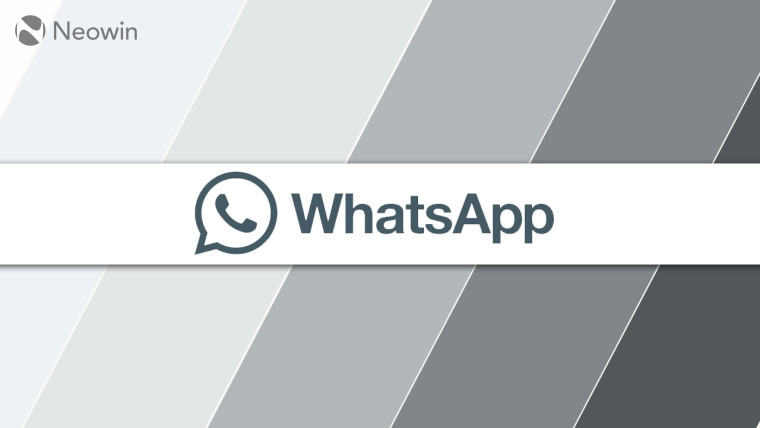- TheBetterWeb
- Posts
- WTF is Web5?
WTF is Web5?
Issue #2

Welcome to the 2nd edition of Thinking Web:5.Today is really about Web5 and the future of the Internet. You'll learn what this new concept is all about and why it's called Web5 in the first place. It will be a question and answer game. I hope you like it and have fun.Let's go.
What has happened so far?
I wrote about it more detailed in the first issue of this newsletter.
Web2 is the online world we live in. It promised us democracy, more direct communication, shared information and global interaction. It didn’t quite turn out that way. To keep our civil societies functional, we need to communicate more, not less. People need to organize and work with data securely. But the gatekeepers of modern society, big tech and governments are increasingly failing, failing to secure communication, sharing of data and participation. Think Europe, where the EU is fighting Big Tech and enacting strict laws because of data privacy violations. At the same time, however, the governments are also trying to get people's data in several new ways. It's even worse in the U.S. where both Big Tech and the government are rampantly collecting data. Besides those challenges Western societies are struggling with authoritarian tendencies, dictators on the outside, wars and of course climate change. The problems of the online and offline world affect each other but possibilities are not linked for the better.
Then came Web3 and promised freedom, autonomy and grassroots democracy. Not much of that has materialized. Instead, many people have become very disappointed and very poor. This was particularly evident in the last few weeks. Web3 created the narrative of a better web. Admittedly the fact is that again exactly the opposite has been implemented. Web3 opened the door to absolute capitalism and owes successful use cases and solutions not only for the online but also for the offline challenges. Web3 over promised and under delivered.
But what does that have to do with Web5?
Also Web3 has failed but we must return to the core values we hold so dear. We need a new approach for a new web culture.
Web5 wants to start over. This is much more than the next technical iteration of the Internet. It's about a new online culture, economy, maybe a new society that responds appropriately to the problems of humanity. Imagine a world where you can move from Twitter to Mastodon and take all the followers and content with you. A world without data stolen from platforms and sold to the highest bidder. An Internet without central servers that governments or corporations can shut down if they want to. That's Web5. In the social field, for example, this enables the general public to have a say on certain issues. Elections can be held online without any risk. In war or crisis situations, peer-to-peer networks enable secure communication even without an Internet connection. If you think this through to the end, a kind of new society actually emerges.
So much for the social context.
Where does Web5 come from?
In June 2022, Jack Dorsey tweeted that he and his team were working on an important project, using the hashtag #web5. This was a decisive starting signal for a new movement beyond Web3.
this will likely be our most important contribution to the internet. proud of the team. #web5
(RIP web3 VCs 🤫)
— jack (@jack)
5:35 PM • Jun 10, 2022
Dorsey is the founder of Twitter, who launched a new company, called TBD, after retiring from the platform. TBD proclaims for itself, they make the decentralized financial world accessible for everyone.
What is the plan?
Decentralization and ownership of identity and data are the main goals of Web5.
We need to build decentralized networks. These networks are called peer-to-peer or P2P networks where the participants are directly linked to each other and have the same rights. Communication doesn’t take place via a server but directly from one computer to another. The advantage: Platforms and gate keepers cannot simply shut down servers and with them entire services and livelihoods. Think of Twitter and Musk. Or WhatsApp and Zuckerberg. Imagine what will happen if the EU decides to ban Gmail tomorrow. Many of us would be screwed. There's no way that could happen with Web5 because it’s completely decentralized.
Ownership of identity and data is another issue we’re facing. If you're not paying for the product, then you're the product, is a famous phrase from the movie The Social Dilemma. Anyone who uses a free app today pays with their data. We sell the trading rights to our data and no longer have any influence on what data can be seen and used by whom. Even more, pretty strange things tend to happen which big companies and governments can't control. Web5 establishes decentralized identities and stores data in an equally decentralized manner. Users can manage both autonomously. An important factor of the concept is that users identify themselves rather than an entity identifying the user.
Can I have some tech?
TBD says it is building a truly decentralized web platform (DWP).
This platform has three main components.
DIDs Decentralized identifiers
As a very important factor a decentralized identity eliminates dependencies on centralized third parties like platforms or government agencies. I can store identifiers on my DID. These can be, for example, name, cell phone number, date and place of birth. A decentralized identifier can be associated with various entities, including people, organizations or government entities. DIDs can be compared to modern wallets which reside on blockchains or other peer-to-peer networks.
VCs Verifiable credentials
VCs allow data to be trusted when presented. When you receive a verifiable credential, you can verify that this data was issued by a specific issuer without contacting another party. Verifiable credentials enable the verification through the use of decentralized identifiers. Basically it’s like the Two-factor authentication we know from our daily businesses.
DWNs Decentralized Web Nodes
Web nodes form the basic structure of Web5. They provide a peer-to-peer network of users. The user run DWNs themselves on their computer or device. DWNs allow information to be shared, passed on and identified.
How exactly do Web3 and Web5 differ from each other?
Web5 relies on Decentralized Web Applications, called DWAs. They are not blockchain-based and run in a peer-2-peer network. Web3, on the other hand, relies on decentralized applications, DApps, on a blockchain.
The most important difference is how data is handled. Web5 is completely decentralized and our data is no longer stored on central servers. This is enabled by DWNs and DIDs.
Web3 promises the same thing. In Web3 data is mostly stored on a blockchain, another type of P2P network. However, to process this data, you are again dependent on platforms like Coinbase. The problem with those kinds of platforms is that they run Web2 technology as gatekeepers to get into Web3 technology.
Another important point: People are not educated about the advantages and risks of new technologies and their possibilities what refers to Web2 and Web3 and has caused a lot of the misleading.
Also Web5 is moving away from tokenization of everything and everyone. While in Web3 suddenly even air was tradable, here there is a clear statement of Mike Brock, who is lead at TBD:
Let me clear this up right now, everybody: No. There are no tokens to invest in with web5. Kthx.
— Mike Brock (@brockm)
6:30 PM • Jun 10, 2022
No tokens in Web5 to prevent the same thing from happening again.
Why “Web5”?
The solution is simple. The goal is to put together the most important features from Web2 and Web3. Those are user-centric apps and services as we know them today, coupled with decentralization and data autonomy as Web3 promised.
The equation is Web2 + Web3 = Web5. Funny, isn’t it?
Let’s be smart.
Web5 promises similar values as Web3 already did.
Decentralization and ownership of data and identity.
But while Web3 has landed in a commercial nirvana, Web5 will remain serious. After all, there is a conceptual distinction that makes a difference: There are no tokens and no large investments possible.
Still, the movement is in its infancy. In addition to the big players around Jack Dorsey, there are already several other projects that you should watch and perhaps also support. More about that next time.
🔗 Links of the week
// This is worth a look: open web advocacy.
// Stephen Diehl about pure speculation in crypto:
// Web3 is going just great 😁
That's it for this time. Feel free to leave feedback or additions. Or suggest topics that interest you.
See you soon and stay decentralized! :)
Daniel




